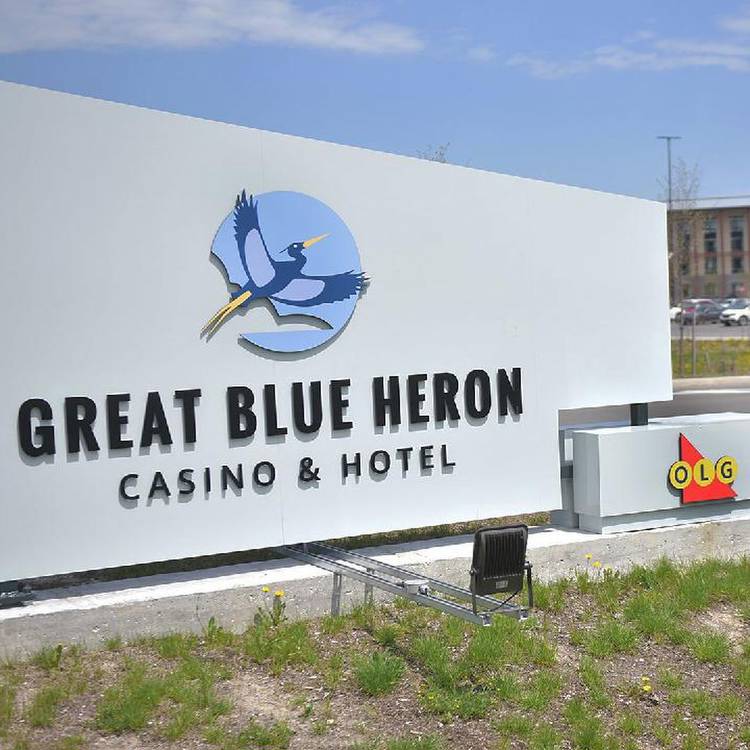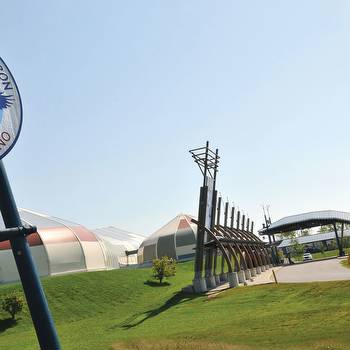'Great concern around the existential threat that is iGaming': Durham stakeholders weigh in on introduction of online gambling

Kelly LaRocca is of the opinion that iGaming is a bet the province can’t afford.
Ontario implemented its new online betting model in April, a move that the Mississaugas of Scugog Island First Nation (MSIFN) has panned since it was first announced in January, citing a lack of consultation with the province’s Indigenous communities and potential for lost revenue and jobs.
Under the new online gaming system launched in early April, dubbed iGaming Ontario, the new Alcohol and Gaming Commission of Ontario subsidiary will let private gaming websites that have qualified through a licensing process start taking wagers.
That decision has led to consternation among the Scugog Island First Nation who have raised concerns the province has rolled out the new offering too quickly without giving thought to the impact it would have on existing gambling halls in Durham Region as well as the economy of local First Nations.
“I think that they’re rolling out the program too fast without proper data to support their model. They’ve given us pretty scant details around their model and around their belief that this will not deleteriously impact the land-based gaming facilities in the province, not to mention the concerns around responsible gaming and public health and safety,” said LaRocca, chief of the MSIFN.
“I’ve seen very little data to support ... their very rushed unveiling of the gaming machines. There’s been very little consultation with First Nations, but also with Ontarians in general and certainly the service provider operators that run the land-based facilities within the province. I think the operators are all on board from what I am understanding and they are feeling generally the same way that they have great concern around the existential threat that is iGaming.”
Instead of relaxing its restrictions on who can run an internet gaming site in Ontario, making it basically a “Wild West” free-for-all for companies across Canada as well as those offshore, LaRocca said the province should have taken a slow approach by offering online gambling to be run by existing brick-and-mortar casino operations through a “tethering” system.
“That is the very least they can do, because the threat to our gaming positions remains live, certainly speaking on behalf of the First Nation and the Great Blue Heron, but it’s really a threat to all gaming across the province in the sense that anyone with the internet can game from their living room,” said the MSIFN chief.
“So it’s really quite disturbing and I think that for those service providers and those communities that have put their blood, sweat and tears into proliferating responsible, successful gaming in the province and investing in Ontario, I think that they ... should be the most concerned because they’re in direct competition with the province who is also the regulator. The irony is palpable.”
LaRocca also reiterated previous statements that the MSIFN would seek legal steps against the province over its decision to launch iGaming without consulting First Nations as well as the introduction of another Durham Region casino in Pickering.
“Unfortunately, the province has put us into a position after three years of promising that they would sit at the table with us, the province has put us in a position where we have no other avenue except to seek legal recourse, which we’re doing,” she said.
In late January of this year, Scugog councillors passed a resolution calling on the province to “provide some certainty” that the new iGaming model would not negatively impact the existing land-based gambling industry.
In bringing forward his notice of motion, Ward 3 Coun. Robert Rock raised concerns about the potential for lost casino jobs and less spending in the Scugog community by fewer visitors to the Great Blue Heron Casino.
“I’m concerned that this iGaming model, if not thought through appropriately, can have some negative impacts for an industry that employs people in our region and contributes to our local economy,” he said at the Jan. 31 meeting.
In a separate interview, Rock also acknowledged that less money flowing through to the MSIFN could mean fewer donations to the community and region from the Scugog Island First Nation.
“Any threat to (the MSIFN) is another threat to the community because they do reinvest in this community,” he added.
Supporting the motion put forward by Scugog was Ajax, which also has a stake in iGaming with uncertainty swirling around the future of its own casino, with its lease running out in 2026. Ajax has used some of its share of those casino funds to build a new recreation centre as well as update its fleet of vehicles using the $96 million it has received to date.
“I think it’s going to have a very significant impact,” said Sterling Lee, the regional Ward 2 councillor. “I understand the internet is where everything is going. But we also understand that these casinos, which host municipalities have in their jurisdictions, there’s a lot of significant revenue to the towns that create major pilot projects.
“And when you start taking away from brick and mortar and going towards an iGaming model, there is no kind of guarantee that host municipalities will see any of that money or even where any of that money goes and that’s not even considering any of the jobs that are possibly at risk as a result, because there’s no sort of mandate that iGaming operators be Canadian owned or Canadian run or Canadian businesses.”
In neighbouring Pickering, where a new rival gaming hall recently opened up, Mayor Dave Ryan says his concerns are not as much with competition from iGaming as the province’s decision to open up the gambling industry to outsiders before existing casinos can get back on their feet post-pandemic.
“iGaming is part of the overall package and we understand that and we don’t have any difficulty with iGaming, specifically, I am concerned about the implementation of the iGaming model; I mean, we’re just going through a restart, if you will, of the bricks and mortar casinos,” he said.
According to Ryan, Pickering has received $7.8 million over the final three quarters of 2021 for hosting the casino, including almost $2.3 million in the final quarter of last year, which the mayor described as “lower” than anticipated.
“You can see there’s a significant revenue stream there for which the city is ... grateful and we’re also anxious to see that revenue stream is protected, obviously. The other serious concern is, of course, for the jobs that are associated with the casino. So we’re very concerned that the casino, the bricks and mortar operation, be allowed to re-establish itself, if you will, post-pandemic. And so that’s our concern relative to the iGaming. That is just the implementation schedule and how they’re going to allow the existing casinos to participate in that iGaming going forward.
It’s estimated by the casino industry that iGaming could, over five years, jeopardize 2,500 gaming hall jobs and result in $190 million less in municipal contributions and a loss of $3 billion in provincial tax revenue.
According to Unifor, the union that represents casino workers, including those in Durham Region, Ontario will be the first province to allow private-sector operators to offer online betting on games like slots, blackjack and poker.
Corey Dalton, president of Unifor Local 1090 in Durham, did not respond to an email request for a comment for this story. In February of 2022, he forwarded along a union letter stating the local’s position.
“We are especially concerned that, under the current proposal, iGaming operators would be allowed to stream a smaller share of gaming revenue to the provincial government than bricks-and-mortar casinos, a concession that gives these mostly foreign internet gaming companies a significant and unfair advantage,” said the union in a Jan. 12 letter to its membership. “This is a multi-billion-dollar mistake in the making that will lead to fewer jobs, higher municipal taxes to compensate and less revenue for Ontario schools, hospitals, roads and other priorities.”
Great Canadian Gaming Corporation, which operates the three Durham casinos, also did not wish to be interviewed for this article or answer submitted questions. Instead, Chuck Keeling, the company’s executive vice-president of stakeholder relations and responsible gaming, provided a statement on behalf of Tony Rodio, the chief executive officer.
“Great Canadian supports fair, competitive gaming rules, whether for land-based facilities or online. The pandemic has forced our facilities to close for the better part of the last two years, putting thousands of our workers out of a job. As the pandemic eases, we are seeing guests return to our casinos because we provide a best-in-class gaming experience, delivered responsibly and safely by hard-working Ontarians.
“While Great Canadian supports iGaming in principle and has every intention of participating in the market, we continue to engage with the provincial government and its various agencies regarding our concerns with the province’s iGaming model. We are committed to investing hundreds of millions in our facilities, generating billions in revenue for the provincial government, and employing thousands of Ontarians, and we will continue to advocate for policies that support that commitment.”
NordStar, an investment company led by Jordan Bitove and Paul Rivett, which also owns Torstar, the owner of this newspaper and other media properties, also has entered the online gambling world. NorthStar Gaming, a gaming venture of NordStar, has said it plans to launch an online betting brand and take bets on sports. It said it has reached an advertising and marketing services agreement with Torstar.
STORY BEHIND THE STORY: With the June 2 provincial election quickly approaching, we reached out to various stakeholders across Durham Region to garner their thoughts on Ontario’s new iGaming model.





































